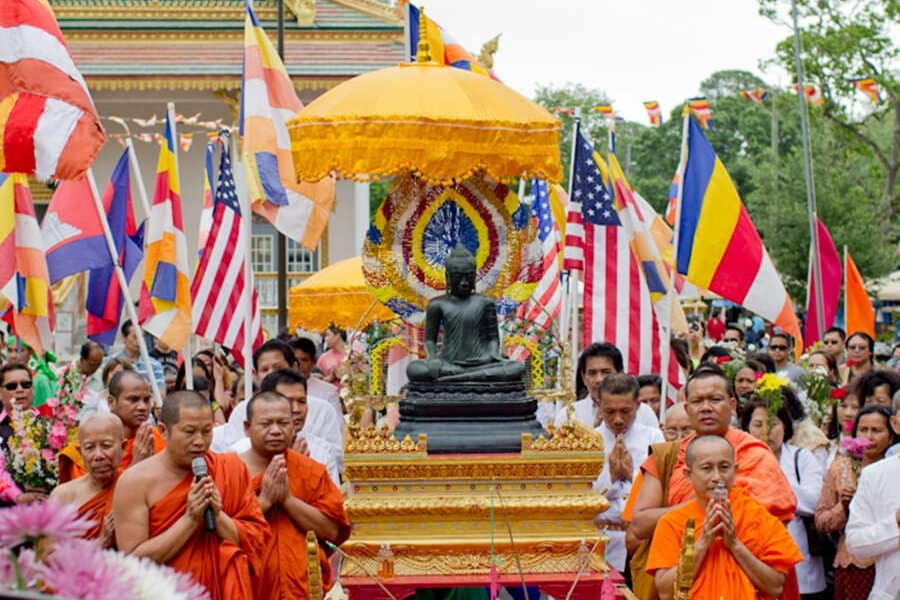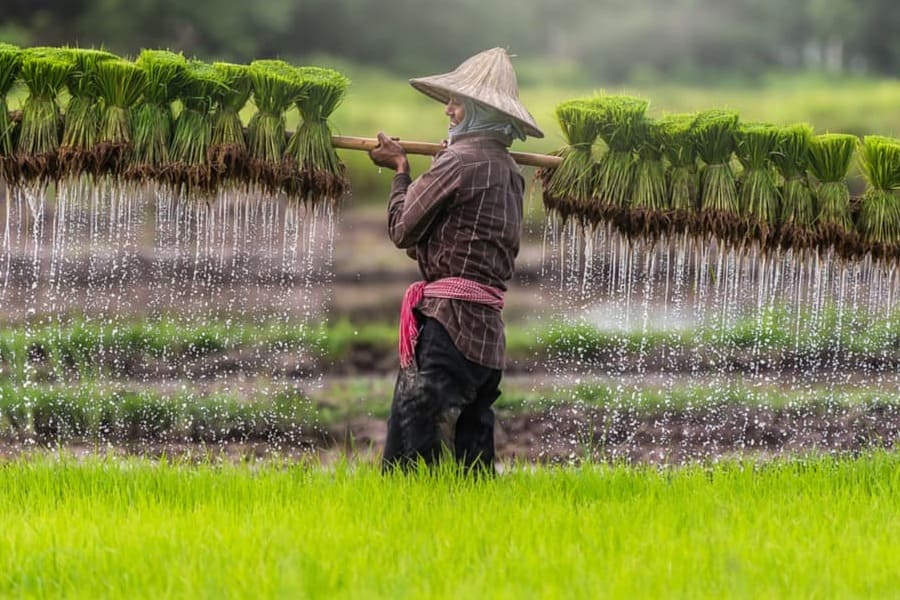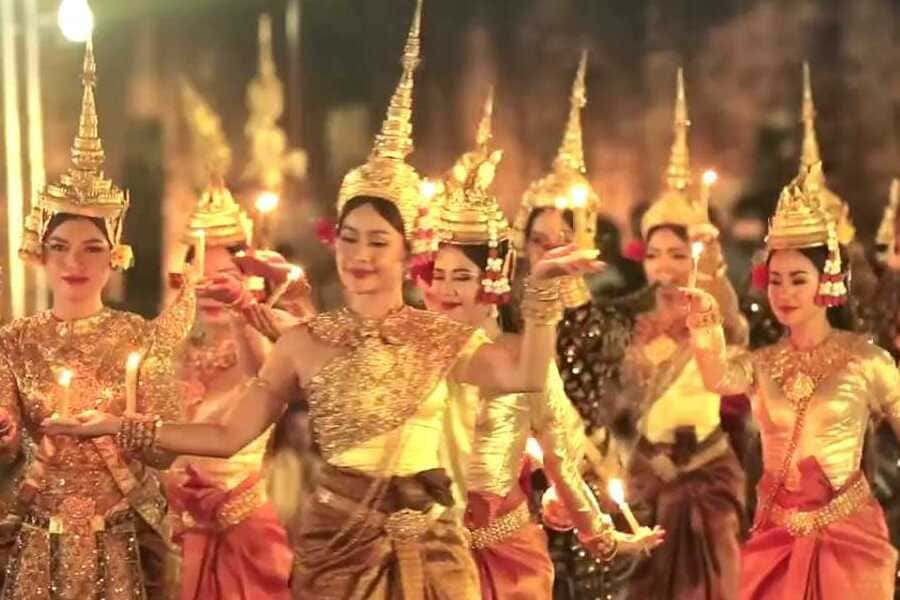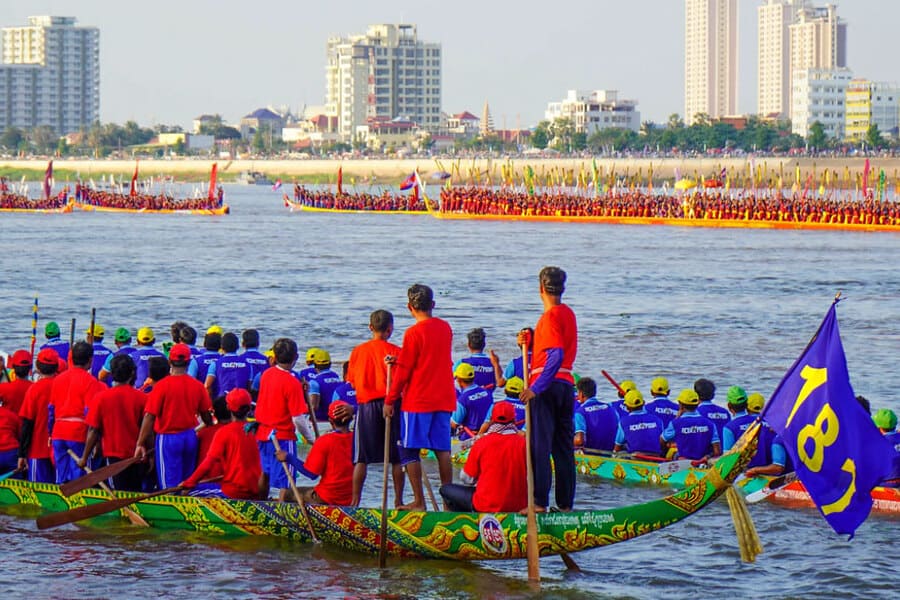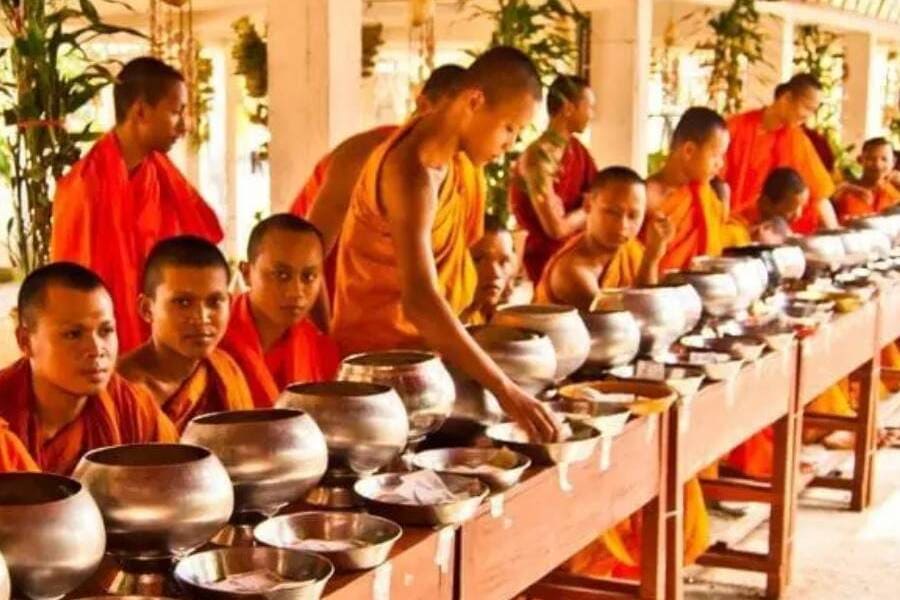Embarking on cambodia tours promises a mesmerizing journey through a land adorned with ancient temples, lush landscapes, and vibrant cultural festivals. To make the most of this enchanting experience, understanding the nuances of Cambodia's weather and festivals is essential. This guide illuminates the best times to visit Cambodia, offering insights into the country's diverse climatic patterns and highlighting the exhilarating festivals that punctuate its calendar.
The best time to visit Cambodia
Cambodia's weather is characterized by a tropical climate, offering warm temperatures year-round with distinct wet and dry seasons. Understanding the nuances of Cambodia's weather patterns is essential for planning an enjoyable and comfortable visit to this enchanting country.
Dry Season in Cambodia (November to April):
- The dry season in Cambodia extends from November to April, offering travelers sunny skies and minimal rainfall.
- Temperatures are typically warm and pleasant, ranging from 25°C to 35°C (77°F to 95°F) on average.
- This period is ideal for exploring Cambodia's renowned temples, such as Angkor Wat, without the interruption of heavy rain.
- Water levels in rivers and lakes are lower during the dry season, making it an excellent time for activities like boat cruises and water sports.
Wet Season in Cambodia (May to October):
- The wet season in Cambodia spans from May to October, characterized by frequent rainfall and high humidity.
- Temperatures remain warm, but humidity levels increase, ranging from 24°C to 32°C (75°F to 90°F) on average.
- Rain showers are common, particularly in the afternoons and evenings, with the heaviest rainfall occurring between June and September.
- Despite the rain, the wet season brings lush, green landscapes and vibrant foliage, creating picturesque scenery for travelers to enjoy.
- It's advisable to pack appropriate rain gear and be prepared for occasional travel disruptions due to flooded roads or impassable areas.
While the dry season is generally considered the peak tourist season in Cambodia due to the favorable weather conditions, the wet season also has its advantages, such as fewer crowds, lush vegetation, and lower accommodation prices. Ultimately, the best time to visit Cambodia depends on individual preferences and interests, whether it's exploring ancient temples under clear skies or witnessing the rejuvenation of nature during the monsoon rains.
Festivals in Cambodia
Cambodia's vibrant culture comes alive through a plethora of festivals and celebrations that offer visitors a glimpse into the country's rich heritage and traditions. From religious ceremonies to cultural spectacles, here are some of the most captivating festivals in Cambodia:
Khmer New Year (Chaul Chnam Thmey):
- Celebrated in mid-April, Khmer New Year marks the beginning of the traditional lunar calendar.
- Festivities include vibrant street processions, water splashing ceremonies, and lively gatherings with family and friends.
- Locals exchange blessings, perform traditional dances, and partake in various cultural activities to usher in the new year with joy and auspiciousness.
Water Festival (Bon Om Touk):
- Held annually in November, the Water Festival is one of Cambodia's most anticipated events, especially in Phnom Penh.
- The festival commemorates the reversing of the Tonle Sap River's flow and the end of the rainy season.
- Highlights of the Water Festival include dragon boat races, illuminated boat parades, and lively music and dance performances along the riverbanks.
Pchum Ben (Ancestor's Day):
- Observed in September or October, Pchum Ben is a significant religious festival dedicated to honoring deceased ancestors.
- Cambodians visit pagodas to offer food and prayers to their ancestors, seeking blessings and merit for their departed loved ones.
- The atmosphere is solemn yet deeply spiritual, with monks chanting and devotees paying homage to their ancestors through elaborate rituals.
Bonn Chroat Preah Nongkoal (Royal Plowing Ceremony):
- This ancient ceremony, usually held in May, marks the beginning of the rice planting season and seeks blessings for a bountiful harvest.
- Led by members of the royal family, the ceremony involves the symbolic plowing of fields by sacred cows and the scattering of seeds by royal officials.
- It is believed that the outcome of the ceremony predicts the agricultural abundance for the upcoming year, making it a significant event for farmers and the agricultural community.
Angkor Sangkran (Angkor New Year):
- Celebrated in conjunction with Khmer New Year, Angkor Sangkran is a special festival held at the Angkor Wat temple complex in Siem Reap.
- Visitors can witness traditional Khmer rituals, cultural performances, and ceremonial processions against the backdrop of Cambodia's most iconic ancient temple.
- The festival offers a unique opportunity to experience the convergence of ancient traditions and modern celebrations in one of the world's most magnificent archaeological sites.
These festivals showcase the diversity, spirituality, and resilience of Cambodia's cultural heritage, inviting travelers to immerse themselves in the colorful tapestry of Khmer traditions and celebrations. Whether participating in joyful water fights during Khmer New Year or witnessing the majestic boat races of the Water Festival, experiencing these festivals firsthand offers a deeper appreciation for Cambodia's unique cultural identity.
In conclusion, the best time to visit Cambodia is a delightful convergence of favorable weather conditions and vibrant cultural festivals, offering travelers an immersive and unforgettable experience. Whether exploring ancient temples under clear skies during the dry season or witnessing the jubilant celebrations of Khmer New Year and the Water Festival, Cambodia's diverse landscapes and rich cultural heritage beckon visitors year-round. By understanding the nuances of Cambodia's weather patterns and festival calendar, travelers can tailor their itineraries to embrace the magic of this enchanting country, creating memories that will last a lifetime.

